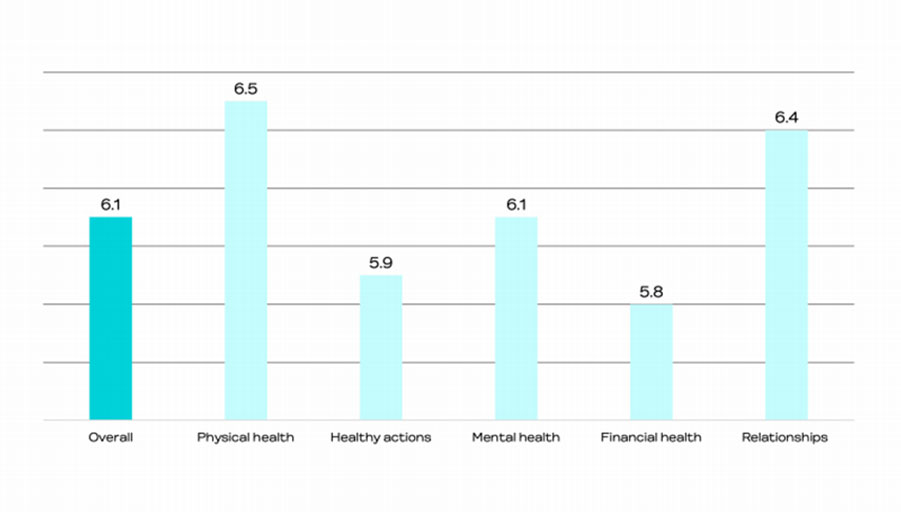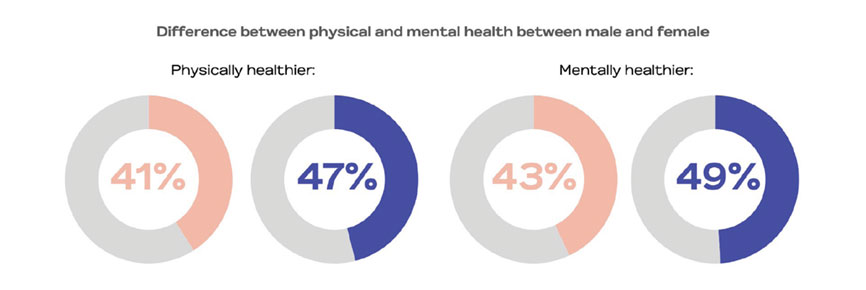A new health study by Wunderman Thompson uncovers that although 44% of people in Singapore say they are healthier now than before the pandemic, there is a large societal problem simmering under the surface of Singapore.
Mental health has taken a beating during the pandemic. A quarter of the country is suffering from anxiety and depression, largely driven by work and financial stress. The study has revealed that 39% of people in Singapore have considered suicide at least once in the past year, with the number jumping significantly among the unemployed.
The study by Wunderman Thompson Singapore called Well-Series: Singapore – A Pulse on the Nation’s Health, covers the overall Health score of the nation and looks at Singapore’s behaviors, attitudes, triggers, and motivations with regards to their physical, mental, relational, and financial health. The objective is to provide insights and takeaways for government, businesses, health care providers, and health brands.

“The silver lining of the pandemic is that health is now the priority for everyone. We are exercising more, eating better, and even spending more on getting healthy,” said Malati Afridi, Chief Experience Officer at Wunderman Thompson Singapore. “However, we are also seeing the rise of more mental health problems and, more broadly, deeper fault lines across society, even in a place like Singapore. This opens up the need for knowledge and tools to equip people to make better health choices, across societal segments.”

Rebecca Nadilo, Chief Strategy Officer at Wunderman Thompson Singapore added: “We’re hopeful these findings will help prioritize who needs help and attention, and where we need to place our efforts to cultivate a physically and mentally healthier Singapore, for everyone”.
The findings are based on a survey of 1,000 Singaporeans aged 18 to 70 years conducted between February and March 2021. The Singapore Health Study will be followed by reports from India, China, and Japan, offering a regional snapshot of post-COVID-19 health.
Key Findings
Singapore’s overall score on the Health Index is 6.1 (on a scale of 10), with plenty of room for improvement.

Physical Health
Singapore residents are more motivated than ever before about their physical health, despite working longer hours, increased screen time, and being more sedentary.
- 61% say they are more sedentary
- 46% are working longer hours
- 44% of Singaporeans say they feel physically healthier than before the pandemic
Mental Health
While 79% declared that mental health was a priority, 68% say there is a stigma against mental health issues, and more than half say they would avoid or delay seeking help.
- 39% have considered suicide at some point
- 66% say they have started meditation (even if rarely)
- 63% have downloaded wellness or meditation apps.
Relationships
- 36% says the pandemic has resulted in increased domestic violence in their homes
- 21% report strained relationships between parents and children, and between spouses.
- 29% report a loss of libido or sexual desire.
Inequities
COVID-19 highlighted the inequities within society, between gender, education levels, employment status, and income:
- Unemployed citizens are 8 x more likely than employed citizens to be unsatisfied with their physical health.
- Education and income have a link to the level of proactiveness when it comes to managing health
- Women’s health is deteriorating more than men’s, as reflected in their healthy actions.

Click here to view the Report and explore the Interactive Dashboard.

















